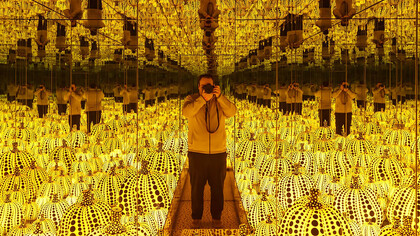Nefeli Stylianou is an art collection manager, curator, and project coordinator based in Cyprus. She holds an LLB in Law from the University of Reading, UK, and was admitted to the Cyprus Bar Association after completing her legal pupillage. She later earned an MSc in Art, Law, and Business from Christie’s Education London, gaining hands-on training and insights from leading figures in the art market, museum, and curatorial professions. Nefeli specializes in managing private international collections, offering tailored administrative, operational, and research services.
She is responsible for the care, organization, and oversight of collections, ensuring their preservation and documentation. Her work includes specialized research and cataloguing, preparation of condition reports, coordination and monitoring of storage and handling, and the organization of international transport and logistics—including customs procedures, insurance, and shipping documentation. She also oversees insurance compliance, facilitates loan agreements, and provides support with acquisitions and deaccessions.
Additionally, she contributes to strategic planning for collection development and liaises with artist estates, art institutions, and galleries. Within the context of the Cypriot art scene, Nefeli curates exhibitions and manages art events that aim to broaden public engagement with contemporary art and foster meaningful cultural dialogue.
While the broader objective is to contribute to the development of a sustainable local art market, her current focus lies in enhancing accessibility and encouraging active audience participation. She is dedicated to strengthening art education and increasing exposure to visual culture through events and exhibitions that reach diverse audiences.
Nefeli believes that cultivating a culturally engaged community is an essential step towards establishing a strong foundation for an art ecosystem that is resilient and not solely dependent on external market forces. In 2019, Nefeli launched Ksoporti Art Weekend, an annual initiative designed to provide Cypriot artists with a platform to showcase their work and to foster deeper, more personal engagement with the public. Running for four years, the event took place twice in Limassol, once in Larnaca, and once in Paphos. Each edition spanned a long weekend during which local visual artists opened their studios to the public, complemented by parallel exhibitions across the city.
Originally conceived as an open studio event, Ksoporti Art Weekend evolved to include a broader spectrum of the art ecosystem, such as galleries and cultural institutions, tailored to the cultural character of each host city. The initiative aimed not only to nurture cultural engagement and introduce contemporary art to wider audiences but also to offer people the opportunity to connect with art in a more immediate and accessible way. By fostering direct interactions between artists and the community, Ksoporti sought to cultivate future collectors and explore alternative collecting models that reflect the island’s cultural identity and social context.
Some of Nefeli’s past projects include curating exhibitions for the Cyprus Association of Potters and Ceramicists; curating the retrospective of the visual artist Spyros Demetriades, marking his 45-year career, at the Municipal Art Centre of Limassol; and coordinating Out There Together, a series of twelve events organized by Lemesos 2030—an independent organization leading Limassol’s bid for the title of European Capital of Culture 2030. She also established and managed the Seed Youth Gallery, an initiative aimed at promoting young artists based in Cyprus.
In addition, she has worked closely with both emerging and established local artists to organize impactful exhibitions, such as the site-specific project Pandamator: Life Flows Dragging Houses and Crops. This exhibition, held in a disused clinic in Limassol that had been in operation since the 1960s, featured 16 artists from across Cyprus. Nefeli’s primary writing interest lies in exploring the social, political, and cultural dimensions of visual art, with particular emphasis on its role as a dynamic agent of change. She is particularly interested in how visual art engages with history, society, and contemporary realities, as well as its connections—and contrasts—with other art forms such as literature and theatre. Her interest in the art market is approached through a sociological lens, exploring the structures and dynamics that shape it.
This multidisciplinary and interdisciplinary perspective allows her to examine the broader implications of art and its intersections with diverse fields of human thought and expression. As an art professional and advocate, she champions the importance of accessible art education, one that extends beyond textbooks and is rooted in exposure and active engagement. She believes that art not only generates knowledge but also nurtures vital human capacities such as emotional intelligence, critical thinking, empathy, self-awareness, and intellectual curiosity. By fostering a deeper relationship with art, she highlights its enduring role as a transformative force, bridging divides, promoting acceptance of the “other,” and encouraging deeper understanding of ourselves.





